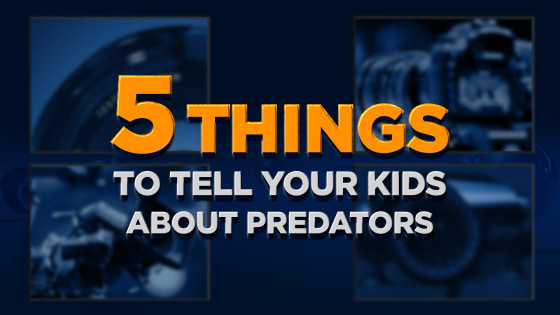- Stay Alert: It’s important to continue to talk to your kids about stranger safety, even into their teen years. When out in public alone or with friends, they should remain alert and aware of their surroundings at all times. Teach them to do a visual inventory of what’s around them: look for risky things along their route like suspicious vehicles, alleyways, doorways, parking lots, and empty buildings. Don’t be distracted by their phones or music players. Perpetrators have the upper hand if they can take kids by surprise.
- Safe Grownups Don’t Ask Kids For Help: If a stranger—or even someone your child thinks he knows—asks for directions or help with a task, the child should say no. When it comes to identifying “tricky people,” it’s not what they look like, it’s what they do. Kids should know safe adults won’t ever touch them in any way, on any part of their body that makes them uncomfortable.
- Trust Your Instincts: Tell your kids that their “uh-oh” feeling is the best barometer for letting them know something’s not right. Teach them to not worry about being polite, even if it’s someone they’ve met before. Disengage immediately by cutting the conversation short and leaving. They should remove themselves from the perpetrator’s access by changing direction, crossing the street, or going into a nearby store or business. If they are grabbed or accosted, start yelling loudly, “Help! Call 911! This is not my parent!” Do not obey the perpetrator. If told not to run or yell, the child should run away and yell. Kids should never get into a vehicle, or enter a home or other enclosed space, without their parent’s knowledge and permission.
- Talk to Your Parents: It’s important to have an open communication policy in your family, with no secrets. Kids should feel they will not be punished, yelled at, or embarrassed for coming to you about a situation with an adult that made them uncomfortable. Be involved in your child’s life and know with whom and where they spend most of their time. Make a point of knowing their teachers, coaches, tutors and any other adults they interact with regularly.
- Don’t Share Personal Details Online: Teach your kids to never give out personal information, like full name, address, phone number, school, sports teams they’re on/activities they do, friends’ names or places they hang out. This includes posts on social media. Geotagging their location on Instagram makes it easier for a predator to find them. They should never send pictures to a person whom they’ve met online, or agree to meet them in person. Kids should tell you right away if anyone--even someone they know--does or says something that makes them feel uncomfortable online.
- These tips provided by child safety expert Pattie Fitzgerald, CEO of the safety organization, “Safely Ever After”.
